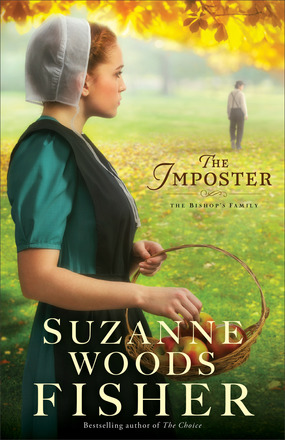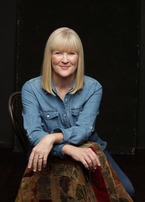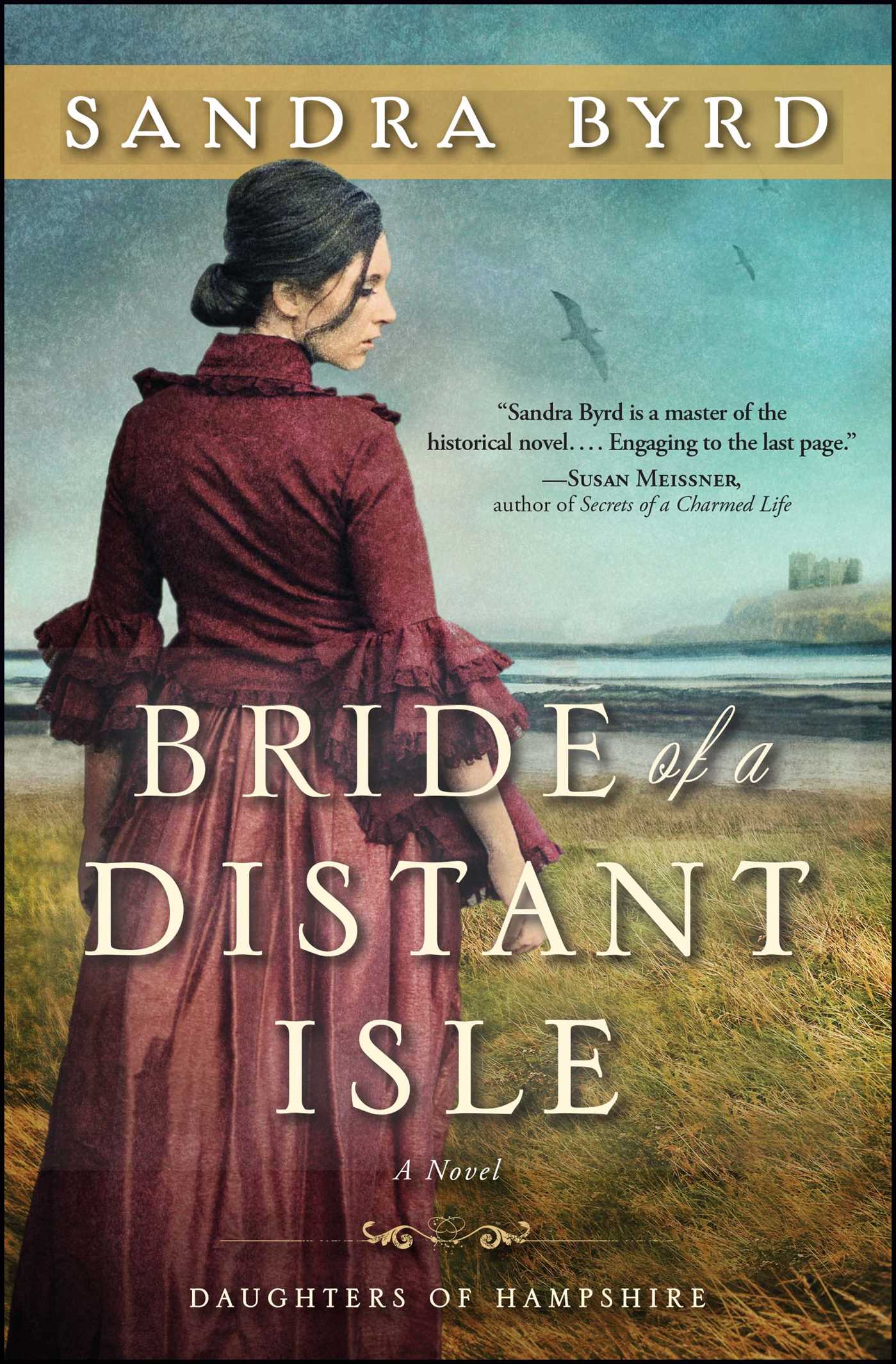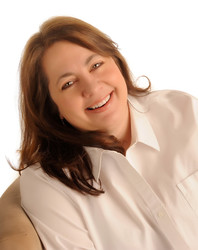I wasn't ready for this book to end. Here are some wonderful quotes from
Wisdom ~ the characters speak of each other and their good influence bringing out the best in others.
Andy Miller has hired on as a farmhand, tending widow Thelma Beiler's new moss business on her hilltop. Since falling, her friend Birdy Glick has come to ask if the older daughter of widowed minister David Stoltzfus could come and stay while Thelma's shoulder mended. Heartbroken by the unexpected desertion of her boyfriend, Katrina Stoltzfus is eager to go, to reclaim her life in a new setting.
David Stoltzfus owns the local bulk store, Bent N' Dent. Their family moved from Ohio, when he was invited to serve the
church in Stoney Ridge. The family dynamic shifts when Katrina leaves, with sister Molly volunteering to take over the kitchen duties. Their father encourages she is learning. Her brother, Jesse, is glad he has noontime meals with his job! Sister Ruthie and younger twins Lydie and Emily are occupied and don't seem to notice.
Uncertain adventures happen in the story, affecting David and his family. He looks to the future outcome while making decisions and learns a great lesson in waiting upon the Lord. All is not as it seems with others over the church until their ploy is unexpectedly revealed. David guides his family and those who come to meet with him in a respectful and insightful way. I am glad this is only book one, as I am looking forward to entering Stoney Ridge again.
***Thank you to author Suzanne Woods Fisher, and to Celebrate Lit for sending me a print copy to read and review this first book in The Bishop's Family series as part of the book tour.***
Prologue
Surprises come in two shapes—good and bad. This one,
though, felt indeterminate.
David Stoltzfus awoke in the middle of the night with a
clear prompting in his heart: leave what was familiar and
comfortable and go forth into the wilderness. He had developed a listening ear to God’s promptings over the years
and knew not to ignore them. God who had spoken, David
believed with his whole heart, still speaks.
But where was this wilderness?
A week passed. David searched Scripture, prayed, spoke
to a few trusted friends, and still the prompting remained.
Grew stronger. A month passed. David’s daily prayer
was the
same:
Where is the wilderness,
Lord? Where will you send
me?
Another month passed. Nothing.
And then David received a letter from a bishop—someone
he had known over the years—in a little town in Lancaster
County, inviting him to come alongside to serve the church.
Go, came the prompting, loud and clear.
So David packed up his home, sold his bulk store business, and moved his family to the wilderness, which, for him,
meant Stoney Ridge, Pennsylvania.
As the first few months passed, it seemed puzzling to David
to think that God would consider Stoney Ridge as a
wilderness, albeit metaphorically. The bishop, Elmo Beiler, had welcomed him in as an additional minister, had encouraged him to
preach the word of God from his heart. It was a charming town
and he had been warmly embraced. A wilderness? Hardly that.
More like the Garden of Eden. When he casually remarked as
much to Elmo, the old bishop gave him an unreadable
look.
“There is no such thing, David.” Elmo didn’t expand
on the
thought, and David chalked it up to a warning of pride.
No place was perfect, he knew that, but the new life of the
Stoltzfus family was taking shape. His children were starting
to settle in. They were a family still adapting to the loss of
Anna, David’s wife, but they weren’t stuck, not like they had
been. It was a fresh start, and everything was going about as
well as David could expect.
Then, during a church service, Elmo suffered a major
heart
attack. In a dramatic fashion for a man who was not at all
dramatic, Elmo grabbed David’s shirt and whispered, “Beware, David. A snake is in the garden.”
Later that evening, Elmo passed away.
Two weeks later, Freeman Glick, the other minister who
had served alongside David, drew the lot to become the new
bishop, his brother Levi drew the lot to replace him as minister, and in the space of one month, the little Amish church
of Stoney Ridge was an altogether different place.
Almost overnight, David sensed the wilderness had arrived.
1
When Hank Lapp burst through the door of the Bent N’
Dent in Stoney Ridge, Katrina Stoltzfus whirled around from
stocking the shelves to see what was wrong. He’d lost his hat
and his white hair was poking out in every direction, like a
dandelion puff. His dog was right on his heels, barking like
he was chasing a bear.
“What in the world, Hank?”
“Candidates! I’ve got candidates!” He waved a fistful of
envelopes in the air. “From the letter I wrote in the
Budget.”
“About . . .”
“Your father! Needing a bride! I think we’ve got some
suitable options.”
Katrina stared at him while the words sank in. “No!” The
word came out sharper than she intended, so she softened it
a bit. “Hank,” she said, “what have you done?”
Bethany Schrock, her best friend and best employee,
walked over from behind the front counter, a horrified look
on her face. “How many times have I been in this very store and
heard
you girls talk about how much David Stoltzfus needed a wife?
So I got to thinking, ‘Now, Hank, what was it you done to
get Amos a wife?’ I couldn’t remember, not ’til I was halfway
home. Then it hit me, like a brick from heaven dropped on my
head! For Amos, I put a letter in the
Budget
and next thing
you knew, Fern showed up at the door and married him.”
“Please, please, please don’t tell me you advertised for
a wife for David in the
Budget,” Bethany said in a slow,
shocked voice.
“Not an advertisement, exactly. More like a gentle
appeal.”
He pulled out the newspaper from the back of his coat and
pointed to it.
CALLING ALL SINGLE LADIES EAGER TO LAND
A MAN! THE MINISTER OF STONEY RIDGE IS IN
DESPERATE NEED OF A WIFE AND A MOTHER
TO HIS SIX REDHEADED CHILDREN. PLUS, HE’S
A REAL NICE GUY. SEND A LIST OF YOUR
QUALIFICATIONS TO HANK LAPP.
He jabbed his finger at the quote that wrapped up his scribe
letter. “Look at that. ‘From an old maid you get a
faithful
wife.’ I thought that was an especially fine touch. Just to be
sure I got the point across.”
Katrina felt sick to her stomach, an uneasiness she
couldn’t
place. “Oh, Hank. Dad is not going to be happy about this.”
“Well, neither was Amos. But Fern was the best thing
that ever happened to him. She tells him so every morning.”
A heavy, awkward silence covered the room. Hank looked
from Katrina to Bethany. “You both said he needed a wife.” Just a few weeks ago, I heard you both say so, standing right
in this very spot. Birdy was here too, and she agreed whole-heartedly. Now, what’s so wrong about doing something
about it?”
Bethany put her hands on her hips. “It seems like David
should do the choosing of a wife.”
“He can do all the choosing he wants to do!” Hank said,
hurt. “Plenty to choose from. All I did was let the
ladies
know that he was interested.”
And that was the problem, right there, Katrina thought.
Her father wasn’t interested in getting remarried.
She
watched Hank try to jam the letters into his coat pocket,
only to miss his pocket so that the bundle of letters scattered
on the ground. She felt a twinge of guilt as she watched his
happiness evaporate. The more he picked up, the more fell
out of his coat. He had become a clumsy bundle of anxiety.
And that made her think of her father, the number one
anxiety in her life at the moment—no, scratch that.
Definitely
the number two anxiety in her life, if she allowed herself to
think of her boyfriend, John, which she tried not to do but
couldn’t help herself.
John. The thought of his name sent a sharp pain through
her ribs, an invisible dagger into her heart. She refused to believe it was truly over between her and John. Surely he would
come to his senses soon. They were supposed to be forever.
Her father strongly—strongly!—disapproved of John,
for
all kinds of reasons that Katrina thought were unfair and
biased. After the accident that took the life of her mother and
nearly took hers too, her father had become ridiculously over-protective. Katrina had worried him to pieces in the hospital.
She knew her behavior lately was spiking his concern that she was still suffering effects from the accident. She’d been
quieter than usual and kept to herself as much as she could.
He suggested, more than once, that she see a doctor. But
what could a doctor do to mend a broken heart? And
fix
dreams that had turned to dust?
Hank cleared his throat, pulling her back to the matter at
hand. Katrina placed her fingers on her temples—a headache
was threatening. “
What
were you thinking? When I said that
I hoped my father would find someone, I didn’t mean
to
imply that it was our business to do something about it.”
That wasn’t entirely true. Katrina was doing something on
her own—she had made a list of every eligible female over the
age of forty in Stoney Ridge who bore some resemblance to her
mother, either in some physical attribute or in personality. And
she was systematically inviting each woman over to
dinner.
Two, so far. Two disastrous dinners in which her father never
even showed up—though, to be fair, his untimely absence was
through no fault of his own. His work as a minister
meant
he was often called away from home at unusual hours. When
all was said and done, Katrina decided it was not such a bad
thing to have a test to weed out those women who might not
have the patience or endurance to be a minister’s wife. After
all, interruptions were part and parcel of the calling.
The only sound in the store was the crackle of the
letters as Hank stuffed them into his coat pocket. “That’s the
trouble with the world today. All talk, no action.” Insulted,
Hank spun around, muttering about women and their lack
of understanding.
Katrina hadn’t meant to hurt his tender pride. “Wait! Wait,
Hank. I’m sorry. You just surprised me, that’s all.” When he
slowed to turn around, she tried to feign interest and ignore
the queasy feeling that rose up in her stomach again. “Did
you read the letters? Any possibilities?”
Hank patted his pockets. “Fourteen women, all sensing a
divine calling to move to Stoney Ridge, all eager to meet the
widowed minister David Stoltzfus.”
Honestly, that is exactly what Katrina hoped might happen. Her father needed to find someone. He hovered over her
like a worried hen, objecting to any activity that
might bring
risk with it. He was getting worse too. Lately, he
insisted
on dropping Katrina off at the Bent N’ Dent as if she were
nine and not nineteen. She was starting to suffocate
under
her father’s watchful concern. “Maybe . . . we should take
a look at some of those letters.”
Hank lit up. “Now you’re talking!” He grabbed the letters
from his coat and plunked them on the counter. “I like most
of them. But skip that one.” He pointed to a pink envelope
rimmed with flowers. “That’s from a lady who loves cats.
Has over twenty of them.”
“Katrina,” Bethany frowned at her.
Katrina set the pink envelope aside, but picked up a blue
one. “Look at the bright side, Bethany. One of those women
might be the right wife for my father.”
“The bright side isn’t always the right side.”
“Don’t sound so sour on true love, Bethany,” Hank said.
“You might give Jimmy Fisher another chance.”
The on-again, off-again romance of Bethany Schrock and
Jimmy Fisher was a source of great interest to everyone in
Stoney Ridge. Katrina’s brother, Jesse, held bets on who
would be the first to break up. Bethany and Jimmy would
teeter toward matrimony, only to have one or the other pull
back as if getting too close to a fire.
“Ha!” Bethany rolled her eyes. “You know how unreliable he is.”
“That I do,” Hank said happily.
At that moment, Jimmy Fisher materialized out of nowhere. “Who’s unreliable?” he said, holding the door open.
“You,” Bethany said. “You’ve never had a plan that lasts
longer than five minutes.”
“Not true!” Jimmy turned to Hank. “Want to go fishing
this afternoon?”
Katrina and Bethany exchanged amazed glances.
“Where’ve you been, Jimmy Fisher?” Bethany asked,
scowling. “I haven’t seen you in over a week.”
Jimmy grinned and closed the door behind him. “She
can’t
do with me and she can’t do without me.”
“Oh, I can do without you just fine,” Bethany said.
Lately,
she was the one full of doubts about Jimmy as suitable husband material. “I’m going to the storeroom to unpack some
boxes.”
Jimmy watched her go, then leaned his elbows onto the
countertop. “She can simmer up faster than a teapot
on a
hot stove.” He gave Katrina his most charming grin. “But I
have learned to weather it.”
Katrina lowered her voice. “She thinks you’re suffering
from a temporary case of permanent immaturity.”
“Katrina!” came her voice from the storeroom. “I told you
that information in private.”
Katrina shrugged. “But she tells that to everyone.
She says
so all the time.” She pulled out a box of ground cumin–filled
containers and weighed them to mark their price. The strong
smell of the cumin made her stomach twist. Was cumin always this strong? Or was this a particularly pungent batch? “I wish people would say what they mean and mean what
they say.” John, for example.
There I go, thinking of him
again!
She put the cumin container back in the box. That
overly aromatic chore could wait until tomorrow.
“Which reminds me,” Jimmy said. “Katrina, your dad
said to ask Bethany to close up so you could leave
early. Your
brother just got home.”
“Jesse?” Katrina said. “My brother is . . . home?”
“I gave him a ride from town in my own buggy,” Jimmy
said. “Dropped him off a few minutes ago. That’s why I’m
here. Your dad sent me to tell you. The prodigal has returned!”
“I need to get home.” Her thoughts jumbled together like
tangled yarn in a basket. Jesse was home! Finally, she could
stop being her father’s favorite child and let Jesse have a turn
at it. “Would you mind asking Bethany to lock up? I
need
to get home.”
“What about these letters?” Hank roared.
Katrina reached out both hands and scooped up the letters
from the countertop, all but the pink envelope from the cat
lady. She hurried to the door. Over her shoulder she shouted,
“I’ll handle it from here, Hank.”
~*~
Being the most favorite child of David Stoltzfus had been
both a gift and a burden to bear for Jesse. It was
hard enough
to be the only son among five daughters, but added to that
was his father’s constant attention and concern and worry
. . . well, it meant quite a lot of attention was focused on
him. Happily, he loved being the center of attention.
Most of the time. He thought back to the stricken look
on Katrina’s face last night when he told her the news that
her ex-boyfriend, John, was getting married. His dad had
been right about John, all along. He wasn’t a keeper, his
dad had said.
“Is that really true?” Katrina’s voice was thin and wobbly,
but she kept her gaze fixed on him. “You’re not just making
that up so I’ll stop pining for him?”
“It’s true,” Jesse had said. It pained him to be the bearer of
that news, dreaded his sister’s reaction, but he was impressed
with how stoically she was handling the shock. Maybe she
wasn’t as head over heels in love with John as she
had seemed
for the last year.
Later that night, Jesse stopped by Katrina’s door and heard
her sobbing as if her heart had shattered. It actually hurt
to hear her cry.
Unrequited love. It was a predicament he hoped he would
never face.
This morning, as soon as Jesse heard the kitchen door
slam shut behind his twin sisters, and he knew his
father
had left to take the girls to school, he jumped out of bed to
take a shower. He borrowed Katrina’s best lavender
soap and
hoped she wouldn’t mind. He had never smelled better, never
looked more handsome, as he sauntered across the street
to pay a call on a special someone at the Inn at Eagle Hill.
He knocked tentatively on the door to the farmhouse,
hoping that the bad-tempered grandmother of Eagle Hill
wasn’t hovering nearby.
The kitchen door opened and there she was, Miriam
Schrock, his special someone, almost as if she were expecting him. He looked, and looked again. Why, she had
changed
over the summer, filled out in certain places, gone from girl to woman. Her dress, snuggly fitting her compact form, was
rose-colored with a hint of blush. Even her complexion had
a new glow. Her gray eyes met his in mutual appraisal. She
pushed a rather fetching raven wisp of hair off her forehead
and studied him as if he was an oddity.
“Miriam,” he began with a lift of his hat, “I have
returned,
as promised.”
“You also promised to write to me,” she said, cool
as
custard. “And you never did. Not once.” The door began to
shut in his face.
“Let me start again,” he amended rapidly. “I was kept
extraordinarily busy by my hardworking relatives. You know
there’s always more than enough work to do on a farm.”
She kept the door open a crack and peeped around the
doorframe to consider his words.
“There wasn’t time in the day to even pick up a pen and
share with you all that was in my heart.”
“You could have called.”
“Ah, yes. That, too, would have required a surfeit
of spare
time, of which I had none.”
“I heard you had plenty of free time on Sunday nights to
drive Sicily Bender home from singings.”
Sicily Bender?
How in the world had she ever heard that
he had been going out with Sicily Bender? Who would have
told her? Unless . . . news had trickled to Ruthie
from one
of those Ohio cousins. The traitors.
He felt the collar around his neck tighten up. “It’s a long
story,” he said, as if that explained everything.
“Then it will have to wait until I have time to hear it.”
And with that, the door shut tight.
So much for a storybook
Welcome back!
to Stoney Ridge.
~*~
Wide awake at four thirty in the morning, David Stoltzfus
gave up on sleep and decided to go downstairs to work on
Sunday’s sermon before the household started to stir. He
paused at each bedroom door in the hallway, as he did every
morning, to thank God for the gift of his children. All six,
each one his favorite.
He went through the motions of scooping tablespoons of
coffee grounds into the filter, filling the coffeepot with water,
waiting for the pleasant percolating sound to begin, but his
mind was far away.
Jesse was home—a wonderful surprise. But . . . why?
And
so suddenly. When he asked his son, Jesse answered with a
shrug, as if . . . why not? David would have to call his sister
for the real story.
Also troubling was Jesse’s news about Katrina’s boyfriend.
Truth be told, David was relieved to hear that John
was
engaged to someone else, but he ached for his daughter’s
pain. His heart felt pierced as he watched her absorb the
information: First, complete shock. Then she flinched, as if
she’d been struck.
But as distracted as David felt by his children, it was the
condition of the church that weighed most heavily on him.
He poured a cup of coffee and sat at the kitchen table, books
spread out, right under the light of the hissing kerosene lamp,
and bowed his head, asking God for guidance and wisdom
as he prepared for Sunday.
“Sunday,” he said again, this time aloud.
His thoughts immediately traveled to the Sunday before
last, when he had told the young people in the baptism class, “If you’re going to choose to be Amish, be Amish with your
whole heart. Don’t be half-Amish. Don’t live your life with
one foot out the door.” Bishop Freeman Glick glared at him
and cornered him right afterward to give him an earful of
criticism.
That week, six young men dropped out of baptism class.
Parents were frantic, Freeman was livid. He was first at David’s door to tell him
I told you so.
But David stood by his words. He believed them, believed
them with his whole heart.
Freeman said David didn’t understand young people.
“That kind of talk is going to make being Amish obsolete.
The youth will leave in droves. They can’t think for themselves. We need to do the thinking for them. Coax them in
and lead them down the path.”
If a young person didn’t know what he was bending at the
knee for, what was the point of being Amish? What was the
point of all those who had gone before to ensure that baptism was an adult decision? And what would the church look
like if it were filled with confused, lukewarm, halfhearted
members?
That, David felt, would make the church obsolete.
He rubbed his forehead, tense with the image of a scowling
Freeman Glick. His private opinion of the bishop, inconstant
in the best of times, varied almost hourly. Every single discussion ended up in a stalemate. Sometimes David thought Freeman exercised certain neck veins just for discussions with him.
These were the moments when David most sorely missed
his wife, Anna. She was such a good sounding board.
She
listened at all the right times, gave him advice when he asked.
She would know what to do, where to turn. Leave it
in God’s
hands, she would say.
David looked up to the ceiling and lifted his palms.
Leave
it in God’s hands.
A tapping sound on the window made him jerk in his
chair.
Birdy Glick, the only sister to the Glick brothers,
stood at
the kitchen window in the cold and murky light of dawn,
waving timidly. He jumped up from the kitchen table
to open
the back door for her.
“David!” she exclaimed. Her face was bright, as if
with
happiness. “I hope you don’t mind such an early visit. I’m
on my way to Windmill Farm to watch the peregrine falcon
hunt for breakfast and happened to notice your light was on.”
She took a step and tripped over the door’s threshold,
sailing straight into David. He braced himself to catch her
and ended up knocking bonnets and hats and coats to
the
floor.
“I’m terribly sorry! I’ll get them.”
But David was already picking them up, fearing the
worst.
A visit from Birdy was like inviting a kind and gentle bull
into a china shop. David was tall but not as tall as Birdy: she
was six foot two inches, taller than most men.
As her gaze settled fully on him, her eyebrows drew
together in a slight frown. “What’s the matter?”
“What makes you think something’s wrong?”
“I stood knocking at the door for five minutes before I
finally yoo-hooed at the window.”
David felt his cheeks grow warm. “Sorry, Birdy. I didn’t
hear the knock. My thoughts were elsewhere.” He lifted his
palm in the direction of the kitchen table. Books and notes
were piled helter-skelter.
“Miles away, I’d say.”
Not quite that far. More like down the road at the Glick farm. Intentionally redirecting his thoughts, he smiled at
Birdy. “Are you looking for Katrina? She’s still asleep.”
“Actually, no. I stopped by to let you know that Thelma
Beiler hired a farmhand. She said it was your idea.”
“What?” David’s smile faded. “I told her I’d help her interview a few possibilities, to narrow it down. I even gave
her some suggestions.”
“She thought you were too busy to be bothered, so she
posted an ad on the bulletin board down at the Hay
& Grain
and hired the first fellow who called. She liked the
sound of his
voice on the phone. He started a few days ago.” Birdy stepped
up to the window, then turned back to face David. “
I also
learned that Thelma has taken a fall and hurt her shoulder.
Nothing broken,” she hastened to add at the look of
alarm on
David’s face. “Her arm is in a sling while it heals. I thought,
perhaps, it might be wise if someone were to stay with her
for a while. After all, Thelma’s alone up on that hilltop.”
Thelma Beiler, Elmo’s widow, was in her late seventies but
acted like she was in her twenties, insisting she didn’t need
anyone fussing over her.
“Though, of course, it would be best if it were presented in
a different light to Thelma. Perhaps, as someone who wants
to apprentice the moss business.”
David nodded. “This farmhand, he’s Amish, isn’t he?”
“Of course!” Then her brows gathered into a frown. “He
spoke to Thelma and me in Penn Dutch. I think . . . he’s one
of us.”
Something didn’t sound quite right. “Birdy, would you be
willing to stay with her?”
Birdy frowned. “Oh, I would if I could. I really would.
I’m very fond of Thelma.” She lifted her head with
a deep
breath. “But apparently I’m going to be teaching school
this term.”
David tried to hide his surprise. Surprise and annoyance.
Yet
another
decision made by Freeman and Levi that excluded
him. Big decisions, starting with allowing cell phones for
business use. Then Freeman added computers.
David couldn’t ignore the fact that quite a few church
members welcomed Freeman’s soft attitude toward modernizing. The farmers of Stoney Ridge were struggling to make
ends meet; many were abandoning farming altogether
to try
their hand at business ventures. Computers, they believed,
could help aid a small business’s success. Cell phones would
help a business owner be readily available to their
customers.
All true.
But these decisions weren’t without repercussions. They
were choices about principles. Yes, a computer might make
keeping accounts more efficient, but its access to the internet
ushered in a host of new complexities. Discovering
Jimmy
Fisher had a Facebook account, for one thing.
And a cell phone might make life more convenient than an
answering machine in a cold shanty in the middle of winter,
but it also brought in all kinds of options. His mind trailed
off to last week’s wedding, when he spotted Luke Schrock
slyly taking cell phone pictures of the bride and groom.
More to the point, since when was ease or convenience the
goal of the Plain life? He believed the purpose of the Amish
was to love God and others well.
Birdy cleared her throat and David snapped back to
the
present, to the news that she was now going to teach at the
new school. He had nothing against Birdy. He didn’t know
much about her other than a few obvious facts: she
lived in a
small cottage on her brothers’ property, she led bird-watching
tours for tourists. And she was quite tall.
“I think there’s one person Thelma wouldn’t object to,”
Birdy said. “Your Katrina. It’s a perfect solution,
you see,
in that it was Katrina’s idea in the first place for Thelma to
start selling all that moss she’s got up there.”
“I suppose you’re right about that.” It came from a
casual
comment Katrina had made at last June’s school program. A
few of the eighth-grade boys had doubled back for another
year or two, easy to spot by the rim of fuzz on their upper
lips. Katrina had said it looked as if they were starting to
grow moss from all their years in the schoolroom. Thelma
had laughed so hard at her remark that she had tears running down her cheeks.
A few weeks after her husband Elmo’s passing, Thelma
called David to her home and said one word: “Moss!” She’d
been searching for some kind of business venture, but her
property was a shady, steep, rocky hillside. Moss was the
only thing that grew in abundance. David researched
the
topic and discovered that several states and national forests
had banned harvesting wild moss; there was, indeed, a need
for a commercial moss market.
“It seemed, well, I thought, perhaps Katrina might
benefit
from spending time with Thelma . . .” Birdy paused and regrouped, searching for the right words. “Sometimes, people
never get over losing somebody.”
David’s eyes strayed to his wife Anna’s knitting basket,
gathering dust in a corner of the room, but he didn’t let
his gaze linger there. An all-too-familiar stirring
of worry
started to swirl in his chest. He hated to admit it, considering
the source came from a Glick, but there was a lot of sense in that suggestion. Katrina seemed so wounded and bruised.
The poor girl looked tired. Worse than tired—exhausted. She
was too slim and too pale, with dark circles under
her eyes.
Birdy took David’s brief silence to mean he was thinking
it over. “It’s a bit like hitting two birds with one stone, don’t
you think?”
It couldn’t hurt. “I’ll suggest it to Katrina this morning.”
“Excellent. Wonderful. I think it’s a splendid solution,”
Birdy said cheerfully.
The conversation grew suddenly silent. The distant clip-clopping sound of a buggy horse sifted through the
awkward
silence.
Then Birdy spun around to leave and, in doing so, swept
two books off the table with her elbow. They both bent down
to pick up the books at the same time and knocked heads.
A sharp pain creased David’s forehead and he put his hand
over it.
“Oh, I’m so sorry. Terribly sorry,” she said, scrambling
to collect the books.
David stepped back to avoid another collision. Katrina
said Birdy’s clumsiness was David’s fault, that Birdy said
he made her “frightfully nervous.” But what could he do
about that? He didn’t know any cure for just being himself.
The early morning sun started to stream into the kitchen
windows. The day had begun. “I’ll walk you down the
driveway. I forgot to pick up yesterday’s mail.” About halfway
down the path, his attention was caught by the Glick buggy
turning into the Inn at Eagle Hill. He saw Freeman and Levi
climb out of the buggy and walk toward the house.
“The brothers are making the rounds to speak to each
family.”
“About . . . ?”
Birdy lowered her eyes and said in a hushed voice,
“Finances. They plan to review each family’s finances.”
David’s fists clenched. It was a fairly common practice
for a church to nominate trustees to make an assessment
of each family’s finances, every five years or so, to
support
the teacher’s salary and maintain the schoolhouse. But the
trustees were chosen, not self-appointed, and the church leaders were never nominated as trustees. Elmo would’ve never
done such a thing.
“I’d better go.” She took a few steps, then turned around
to face him, a face that was kind and open and sincere.
“Don’t let my brothers wear you down. The church, Stoney
Ridge . . . ,” Birdy dropped her eyes, “we need . .
.” She kept
her eyes locked on her shoes.
They were rather substantial shoes, David noted. As
large
as her brothers’. But unlike her brothers, she had the nature
of a gentle, artless young woman, surprisingly diffident and
shy. Well, it was a good thing she had such stature—she
would need everything she could muster to manage the boys
in that schoolhouse.
The next came out as if she were talking to herself
, “David,
just don’t give up.”
Suzanne Woods Fisher, The Imposter
Revell Books, a division of Baker Publishing Group, © 2015. Used by permission.

 Martha longs for her little brother to be released from the private Yorkview Academy he has been sent to by his mother. On her way to England with her youngest daughter, she conveniently to her, drops Johnny off at the boarding school.
Martha longs for her little brother to be released from the private Yorkview Academy he has been sent to by his mother. On her way to England with her youngest daughter, she conveniently to her, drops Johnny off at the boarding school.


 I will be reviewing Book 2 here at Lane Hill House on May 24, 2016.
I will be reviewing Book 2 here at Lane Hill House on May 24, 2016.










 Book One
Book One



